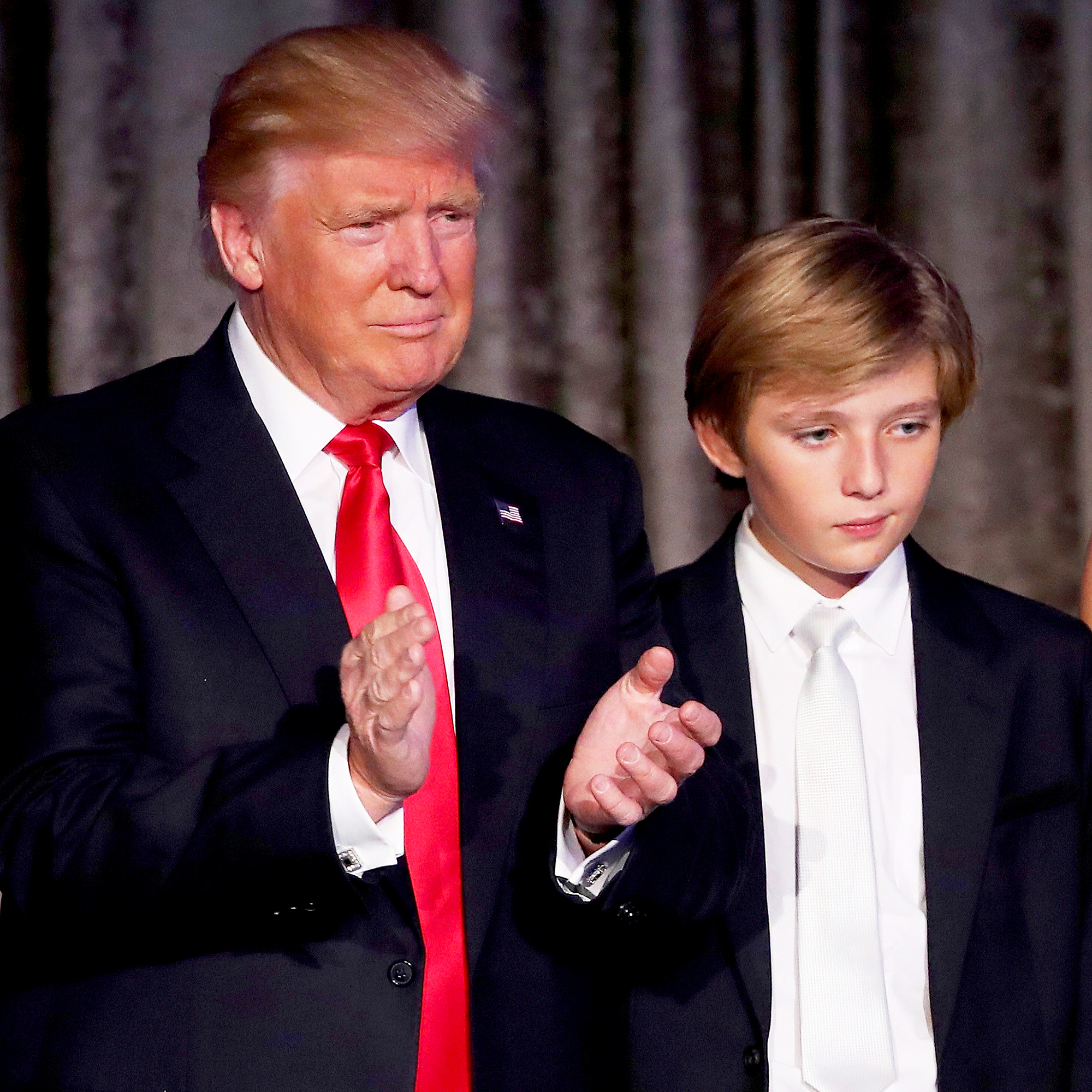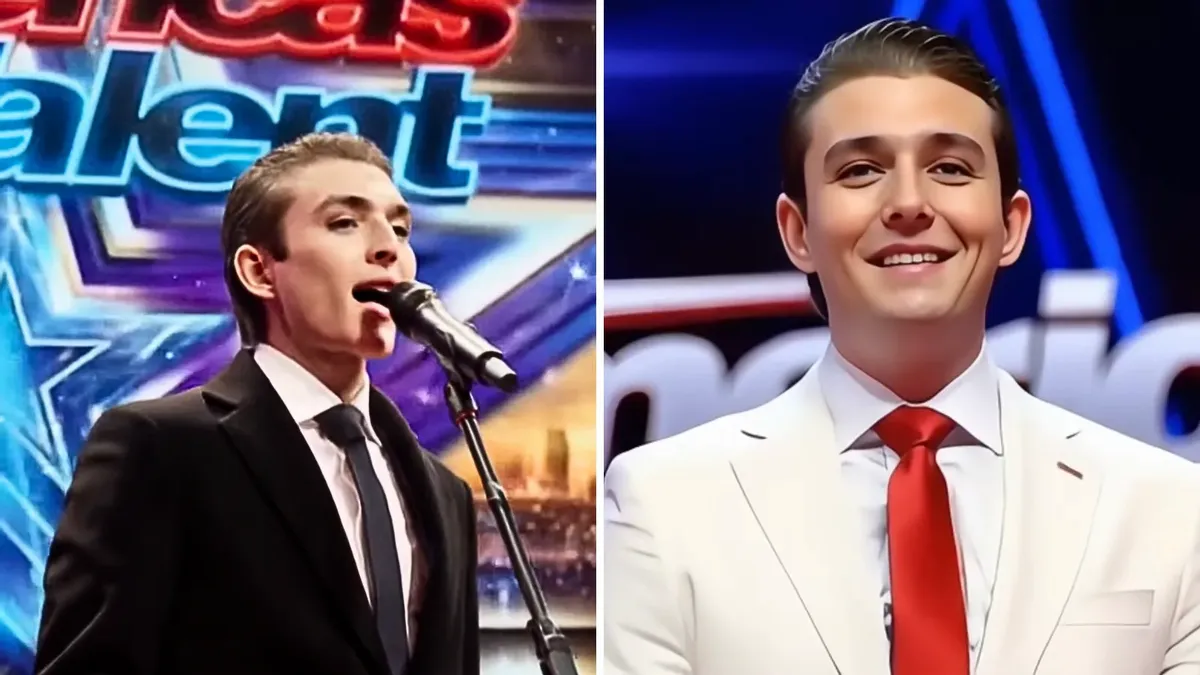Fact Check: Did Barron Trump Sing On America's Got Talent?
Did Barron Trump, the notoriously private youngest son of former President Donald Trump, actually grace the stage of "America's Got Talent"? While the internet buzzed with claims and viral videos, the reality, as often is the case with social media, is more nuanced than it appears.
Earlier this month, the digital sphere erupted with videos purporting to show Barron Trump, now a young man, showcasing his vocal talents on the popular NBC reality show. A TikTok post, a common breeding ground for viral content, quickly amassed nearly half a million views, the caption simply reading: "Barron Trump singing on America's Got Talent." The supposed performance, shared widely across platforms like X (formerly Twitter), Facebook, and YouTube, depicted a confident young man with a "deep, warm voice," captivating audiences with a "heartfelt performance." But was it the real deal?
| Attribute | Details |
|---|---|
| Full Name | Barron William Trump |
| Date of Birth | March 20, 2006 |
| Place of Birth | New York City, New York, U.S. |
| Parents | Donald Trump, Melania Trump |
| Siblings | Donald Trump Jr., Ivanka Trump, Eric Trump, Tiffany Trump |
| Education | The Oxbridge School (High School), Currently Pursuing Higher Education |
| Public Persona | Known for privacy, rarely appears in public or gives interviews. |
| Interests | Reportedly enjoys sports, particularly golf. |
| Noted For | Being the youngest child of Donald Trump; often photographed with his parents. |
| Controversies | Limited public exposure, therefore less associated with controversies. |
| Current Status | Currently attending higher education, focused on his studies and future. |
| Website | Biography.com (Donald Trump) |
The viral videos, however, weren't quite what they seemed. One particular video, published on February 4, 2025, by the YouTube channel Vivo Tunes, bore the title "Barron Trump Singing in America's Got Talent | AI Cover." The accompanying description explicitly stated that the video was "created with the help of A.I. technology and does not represent the thoughts or attitudes of the imitated artists." This crucial detail, often buried beneath the allure of a sensational headline, reveals the deceptive nature of the content.
The rapid spread of these videos highlights the power and peril of social media. In February 2025, the digital landscape was inundated with similar clips, many carrying the same misleading premise: that Barron Trump had unexpectedly appeared on "America's Got Talent." These posts, often designed to generate clicks and shares, played on the public's curiosity and the inherent intrigue surrounding a figure as private as Barron Trump. One viral TikTok post, for instance, garnered over 490,000 views, capitalizing on the "Barron Trump singing on America's Got Talent" narrative.
The most recent video, as of this writing, was published on December 7, 2024, and depicted Barron Trump "singing" a song about his father's victory in the 2024 presidential election. This demonstrates the opportunistic nature of such content creators, who are quick to capitalize on current events and public figures for views. The AI-generated content, though technically impressive, is ultimately a form of digital deception, designed to mislead viewers into believing a fabricated reality.
The fact that Barron Trump rarely makes public appearances, let alone participates in a reality show, should have been a significant clue. However, the viral nature of the videos, coupled with the public's fascination with the Trump family, allowed the misinformation to spread rapidly. This situation serves as a cautionary tale about the importance of critical thinking and source verification in the age of readily available AI-generated content.
The prevalence of AI-generated content raises serious questions about the future of media and the ease with which misinformation can be created and disseminated. The videos featuring Barron Trump are not isolated incidents; rather, they are a symptom of a larger trend. As AI technology becomes more sophisticated, the lines between reality and fabrication will continue to blur, making it increasingly difficult for the average viewer to discern fact from fiction. This necessitates a greater emphasis on media literacy, critical thinking skills, and a healthy skepticism towards information encountered online.
The "Barron Trump on America's Got Talent" saga is a prime example of how easily manipulated public perception can be. The initial claims were amplified by social media algorithms, creating an echo chamber that reinforced the false narrative. As the videos spread across platforms like X (formerly Twitter), Facebook, and YouTube, the illusion solidified, even as the creators themselves openly admitted to using artificial intelligence.
The incident also underscores the importance of media outlets in verifying the accuracy of information before publishing it. While some news organizations are diligent about fact-checking, others may be tempted to jump on viral trends without proper verification, inadvertently spreading misinformation. The responsibility for combating the spread of false information rests not only with individual users but also with media platforms and content creators. They must adopt rigorous verification procedures to protect the public from being misled.
This situation mirrors similar incidents where AI has been used to create fake videos, also known as "deepfakes," of prominent figures. Deepfakes, which can be remarkably convincing, have the potential to cause significant damage to reputations and even influence political outcomes. The fact that AI can now convincingly imitate a person's voice and likeness is a serious challenge to the integrity of information in the digital age.
In the end, the Barron Trump "America's Got Talent" videos serve as a potent reminder of the need to be vigilant and informed consumers of online content. The ease with which AI can generate convincing, albeit false, representations of reality demands that we all adopt a more critical and questioning approach to the information we encounter. This includes verifying sources, scrutinizing claims, and being aware of the potential for deception. Only through such vigilance can we hope to navigate the increasingly complex and often misleading landscape of the digital world.
The AI-generated nature of these videos underscores a broader issue: the increasing sophistication of synthetic media. As artificial intelligence continues to evolve, the ability to create realistic-looking and sounding content will only improve. This raises serious ethical concerns about the potential for malicious use, from spreading disinformation to impersonating individuals for financial gain or political manipulation.
The episode should be viewed as a wake-up call. It is a reminder that what we see and hear online may not always be what it seems. It stresses the need for media literacy, a deeper understanding of how online content is produced, and an ability to think critically about information presented to us. By developing these skills, we can become more discerning consumers of digital media and better equipped to recognize and avoid the pitfalls of misinformation and disinformation. The ability to distinguish between the authentic and the AI-generated will be an increasingly critical skill in the years to come.
It is clear that the widespread adoption of tools like AI requires a multifaceted response. This needs to encompass education, technological solutions (like AI detection tools), and legal frameworks. We require a collaborative approach involving educators, technology companies, policymakers, and individuals to mitigate the risks posed by synthetic media.
In conclusion, while the idea of Barron Trump performing on "America's Got Talent" may have briefly captivated the internet, the reality proves to be a manufactured narrative. This event, despite its entertainment value, highlights significant challenges related to information integrity in the digital age. By understanding the mechanics behind the creation and spread of such content, and by promoting media literacy, we can hopefully protect ourselves from being misled by similar events in the future.



